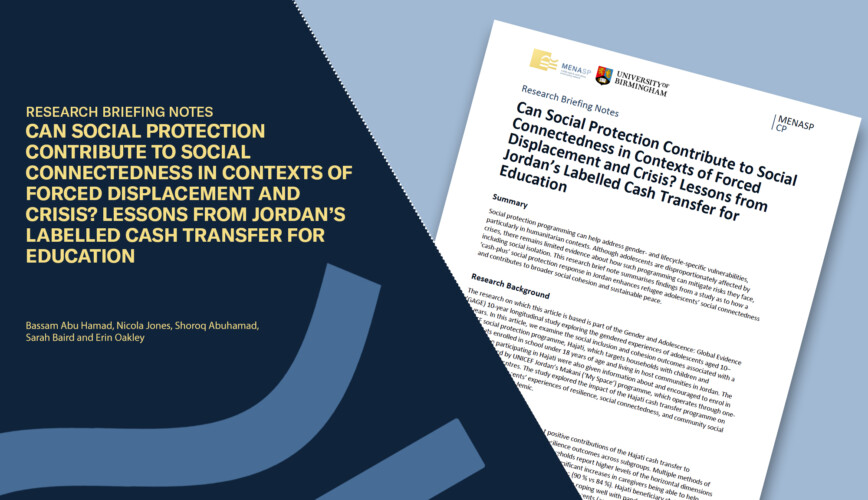Social protection programming can help address gender- and lifecycle-specific vulnerabilities, particularly in humanitarian contexts. Although adolescents are disproportionately affected by crises, there remains limited evidence about how such programming can mitigate risks they face, including social isolation. This research brief note summarises findings from a study as to how a ‘cash-plus’ social protection response in Jordan enhances refugee adolescents’ social connectedness and contributes to broader social cohesion and sustainable peace.
DOI: 10.48352/uobxmenasp.0022
Authors: Bassam Abu Hamad (Al-Quds University), Nicola Jones (Gender and Adolescence: Global Evidence (GAGE), ODI), Shoroq Abuhamad(Gender and Adolescence: Global Evidence (GAGE), ODI), Sarah Baird (Milken Institute of Public Health, George Washington University) and Erin Oakley (Milken Institute of Public Health, George Washington University)
This project is supported by the Middle East and North Africa Social Policy Network (MENASP) at the University of Birmingham, in the framework of its ‘strengthening social welfare and security in the MENA region’ research programme, funded by the UK Arts and Humanities Research Council’s Global Challenges Research Fund.
Disclaimer: The opinions expressed in this publication are those of the authors. They do not purport to reflect the opinions or views of the Middle East and North Africa Social Policy (MENASP) Network or the University of Birmingham.
